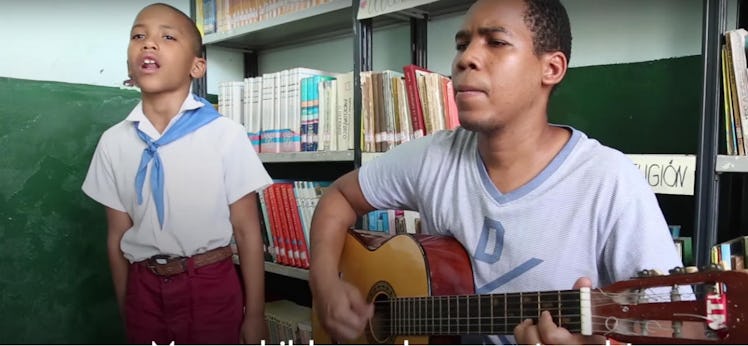Why Children In Cuba Get The Best Musical Education In The World
Hint: It's not economics.

All the studies suggest that music education for kids — which includes learning at least one instrument — has dozens of benefits. Neuroscientists say it improves linguistic function, math abilities, listening and communication skills, and other brain development niceties. These kids are also better behaved and are less likely to skip school. At least until they discover punk rock.
RELATED: The Best New Music For Kids
Most students in the U.S. don’t spend a lot of time in the practice room. In fact, American schools require no more than 45 minutes of music education a week, and most of that is just fumbling with plastic recorders. If you look 90 miles south, you’ll find a country that treats their music department the way Texas treats youth football. Yes, Cuba lacks an open Internet, free press, economic prosperity, freedom to travel, and has suffered under 60 years of despotism, but when it comes to music education, they kind of crush it.
Cuban kids get a whopping 8 hours of free music education a week. That’s 3,600 hours over 12 years. Cubans also spend 10 percent of their taxes on education, while America spends 4. You might say that’s comparing apples to Communist oranges, but it’s hard to argue arts enrichment for children is a waste of taxpayer money. In America, parents who want their kids to get this kind of music education have to search for local magnet schools that focus on it or pay for lessons on their own. That can cost anywhere from $3,000 to $7,000 a year — or 1 ticket to Hamilton.
The Cuban music curriculum is centered around group lessons, but one-on-one instruction is regular and required. History, theory, and televised lessons are also part of the plan. And, if they’re a virtuoso pupil, students get to go to a specialized free music academy. In addition to the benefits mentioned above, the Cuban system offers students potential employment in a difficult job market, the chance to visit other countries without defecting — and a least a little bit of fun.
There’s one more side benefit to music; it brings people together. Black Cubans and women, 2 groups of people who experience the same kind of prejudice and inequality as they do in the U.S., have found pride and acceptance within the system. These state-educated musicians have also become some of Cuba’s most effective ambassadors to their northern neighbors. That’s why they’re not called the Buena Vista Antisocial Club.
MORE: 60 Songs That Prove Kids Music Can Be Awesome
This isn’t to suggest you’re about to move to Havana for the schools. All it says is that Cuba has taken advantage of one of its few natural resources — a strong and unique musical culture — and turned it into a powerful educational, social, and even diplomatic engine. Apparently, band practice is a better extracurricular than model UN.